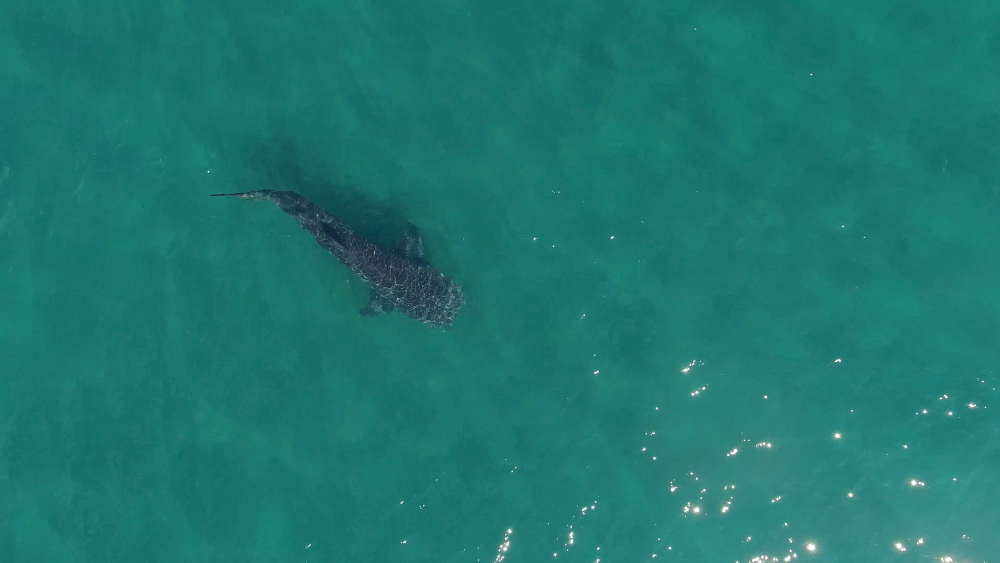The biggest fish in the ocean may not like you swimming with them, according to new research that found ecotourism can have a significant and lasting impact on whale sharks. These gentle giants are a popular tourist attraction for animal lovers, but it may be that current practices surrounding swimming with whale sharks aren’t fit for purpose.
Shark ecotourism – in which people pay to swim with wild sharks – is a multi-million US dollar industry, but in some cases, it elicits disturbed behavior patterns in whale sharks, Rhincodon typus. According to a new paper, behaviors like fast zigzagging movements that are normally a response to predators are brought on by humans’ presence, and could negatively impact a shark’s ability to forage and even reproduce.
To quantify the effect human swimmers have on whale sharks, researchers analyzed 39 overhead videos filmed in the Bay of La Paz in Mexico. In 20 of them, a human joined a whale shark, mimicking ecotourism behavior, and in the other 19 the sharks were left alone.
The videos revealed several behaviors that were far more common when a swimmer was present, including disturbed behavior patterns that use up more of the sharks’ energy compared to passive swimming. This means that the presence of humans increases the amount of food they need to maintain a baseline, and if they don’t meet those demands, it could have a knock-on effect on their reproductive success.
Juvenile whale shark foraging in La Paz Bay, Baja California Sur, Mexico
Image credit: Joel Gayford, Imperial College London
“By quantifying behaviour and applying multiple statistical approaches to these data, we have demonstrated that the influence of human activity on R. typus behaviour is signifcant, profound and context dependent,” concluded the study authors. “These behavioural consequences of ecotourism have potentially concerning implications for R. typus ecology.”
The research isn’t yet calling for an outright ban, but instead highlights the need for a revision to current practices surrounding shark ecotourism, including a more individualized approach when establishing if an animal is suitable for human interaction, or whether it should be left alone.
“In light of these results, we suggest that the initial behavioural state of individuals must be assessed prior to in-water ecotourism activities, and that regulations regarding the minimum distance between human and shark should be revisited and reviewed in detail,” say the authors. “In particular, we suggest that sharks engaging in rapid, angular movements should be avoided.”
The study is published in Scientific Reports.
Source Link: The World's Largest Shark Probably Doesn't Like You Swimming With It
